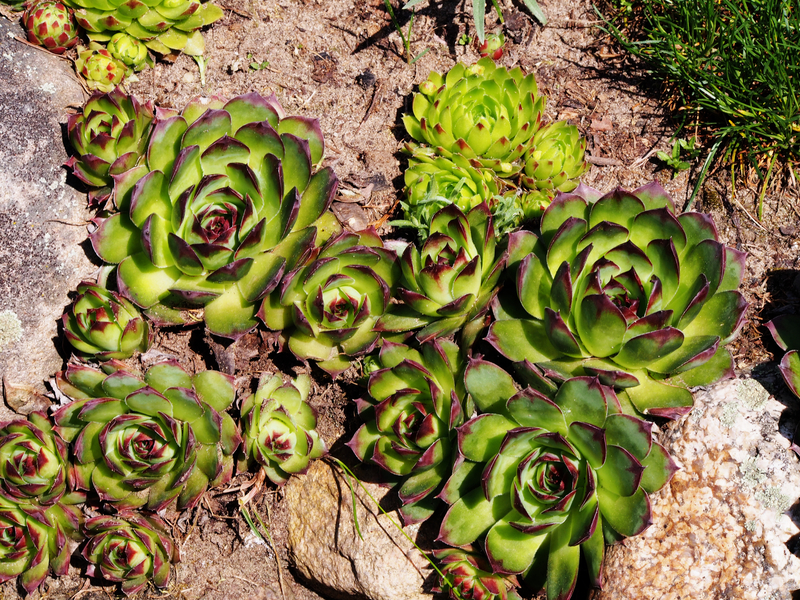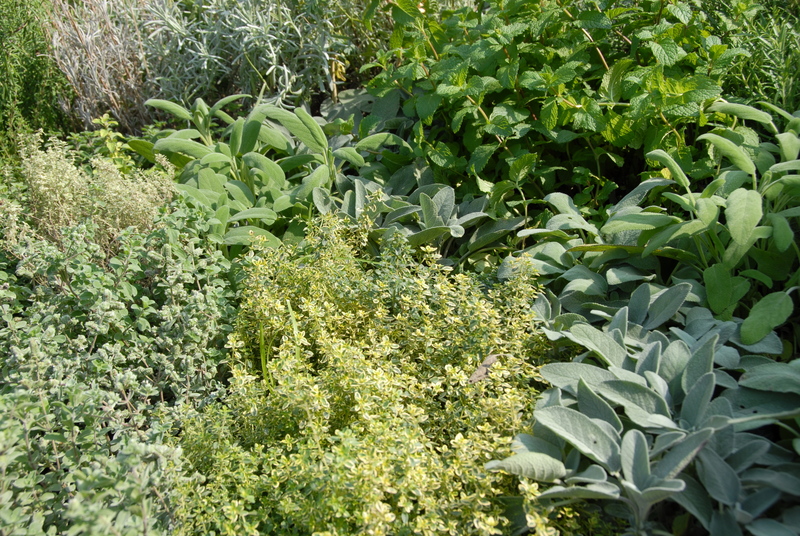Mastering Weeds: 3 Effective Control Techniques
Posted on 26/05/2025
Mastering Weeds: 3 Effective Control Techniques for a Weed-Free Garden
Weeds are a persistent problem for gardeners, homeowners, and landscapers alike. Achieving mastery over these unwanted plants requires a well-informed strategy. In this comprehensive article, we'll dive into different weed control techniques to help you develop a thriving, weed-free garden or landscape. Whether you are a beginner or an experienced gardener, these methods will equip you to take control of weeds and protect your plants.
Understanding Weeds: Why Effective Control Is Crucial
Before implementing weed management strategies, it's essential to understand what weeds are and why they pose such a threat to your garden or lawn.
- Definition: Weeds are unwanted plants that grow vigorously, often competing with desired vegetation for resources such as water, light, and nutrients.
- Problems Caused: They can harbor pests or diseases, diminish crop yields, and spoil the aesthetic value of landscaped areas.
- Persistence: Weeds often have deep root systems or prolific seed production, making them especially difficult to eradicate.
Now that we know why weeds are such a nuisance, let's explore the top three effective weed control techniques that every gardener must master.

1. Mechanical Weed Control Techniques
Mechanical weed control refers to physical methods used to remove or suppress weeds. These techniques are often eco-friendly and can be highly effective when applied consistently.
Hand Pulling & Hoeing
One of the simplest and most reliable forms of physical weed removal is hand pulling. This technique is especially useful for smaller gardens and areas where chemicals are not desired.
- Benefits:
- No chemicals required
- Instant results
- Great for removing individual or small clusters of weeds
- Tips for Success:
- Pull weeds when the soil is moist--roots come out more easily.
- Ensure you remove the entire root to prevent regrowth.
- Use a hand weeder or hoe for tougher weeds.
Mulching for Mechanical Suppression
Mulching is a double-duty weed control method. It not only blocks sunlight, preventing weed seeds from germinating, but also helps retain soil moisture and adds nutrients as it breaks down. Here are some top mulching materials:
- Wood chips
- Bark
- Straw
- Compost
- Grass clippings
- Landscape fabric (as an inorganic option)
Apply a mulch layer 2-4 inches thick, ensuring to keep the material a few inches away from plant stems. Proper mulching forms an effective barrier against many types of weeds.
2. Cultural Weed Control Methods
Cultural weed management focuses on practices that promote strong, healthy crops or ornamentals, giving them a competitive advantage over weeds. Through proper garden design, soil management, and planting strategies, you can significantly reduce weed pressure.
Dense Planting Techniques
Crowding out weeds is a smart strategy. The idea is to plant desirable species close together, minimizing the space and resources available to weed seeds.
- Benefits: Reduced open soil limits where weeds can germinate.
- Best Practices:
- Follow recommended plant spacings for ground covers and annuals.
- Use cover crops or green manures in vegetable gardens and bare areas.
Rotating Crops and Disrupting Weed Life Cycles
Crop rotation isn't only for large-scale farms. Even in backyard gardens, rotating vegetables and flowers disrupts the life cycle of many weed species that thrive in specific conditions.
- Prevents the buildup of certain persistent weed populations.
- Improves soil fertility and structure, helping crops outcompete weeds.
Improving Soil Health
Nutrient-rich, well-drained soil promotes vigorous plant growth, which naturally suppresses weeds by forming dense canopies. Regularly test and amend your soil to optimize plant health and minimize weed opportunities.
3. Chemical Weed Control: Responsible and Targeted Use
While mechanical and cultural methods are the cornerstones of weed management, herbicides sometimes offer the most practical solution for stubborn or large-scale weed problems. The key is to use them responsibly.
Selecting the Right Herbicide
There are two main categories of weed killers:
- Pre-emergent herbicides: Prevent weed seeds from germinating. Apply these before weeds appear--in early spring or fall, depending on the weed species.
- Post-emergent herbicides: Eliminate weeds that have already sprouted. These are divided into:
- Selective herbicides: Target specific weeds (like broadleaves in lawns) without harming desired plants.
- Non-selective herbicides: Kill most plant types and are best for driveways, paths, or large, weed-infested areas.
Safe Chemical Application Techniques
- Always read and follow the label instructions for best results and safety.
- Apply herbicides only on calm, dry days to minimize drift onto non-target plants.
- Use spot treatment instead of blanket application whenever possible to limit environmental impact.
- Store chemicals safely, away from children and pets, and dispose of containers properly.
Organic and Natural Weed Killers
If you prefer environmentally-friendly options, there are several natural herbicides on the market, including those based on vinegar, clove oil, or citrus extracts. These work primarily as contact herbicides, burning the foliage but often requiring multiple applications.
- Boiling water poured on young weeds is another highly effective, chemical-free method for pathways or patios.
Integrated Weed Management: The Best of All Worlds
The secret to mastering weeds is not relying on one technique alone but integrating mechanical, cultural, and chemical approaches for sustainable long-term success. Integrated Weed Management (IWM) combines various weed control techniques and tailors them to your specific needs and environment.
- Start with prevention: good mulching, dense planting, and regular hand-pulling.
- Use targeted chemical control for persistent weed infestations.
- Monitor your property regularly and respond quickly to new weed outbreaks.
By applying a broad spectrum of weed control strategies, you can significantly reduce your workload over time while maintaining a beautiful landscape.
Best Practices for Effective Weed Control
- Stay consistent: Regular monitoring and intervention prevent weeds from getting established.
- Act early: Young weeds are much easier to eradicate than mature plants.
- Promote healthy soil and plants to naturally keep weeds at bay.
- Rotate weed control techniques to reduce resistance and adapt to changing conditions.

Frequently Asked Questions About Mastering Weed Control
How often should I check for weeds in my garden?
Ideally, inspect your garden weekly--especially during peak growing seasons. Catching weeds early is key to easy and effective control.
What is the most eco-friendly weed control method?
Hand pulling and mulching are the top eco-friendly options, as they do not rely on chemicals and enrich your soil biology.
Can I use landscape fabric for permanent weed prevention?
Yes, but with some cautions. While landscape fabric is excellent for suppressing many weeds, organic debris and dust can accumulate on top, providing a medium for new weeds to germinate. Combine fabric with mulch and maintain it regularly for best results.
Conclusion: Your Path to Weed-Free Mastery
Mastering weed control is an ongoing process that pays significant dividends in plant health and garden aesthetics. By combining mechanical methods, cultural practices, and responsible chemical use, you can win the battle against unwanted vegetation.
Start small with regular weeding and mulching, then expand your strategy with crop rotation, soil enhancement, and--in stubborn cases--targeted herbicides. Remember: the most valuable tool is persistence. With the right technique and a bit of patience, you'll transform your landscape into a lush, weed-free paradise.
- Hand-Pull and Mulch for Prevention
- Boost Plant Health to Crowd Out Weeds
- Use Herbicides Responsibly When Absolutely Necessary
Take control of your garden's destiny today: apply these three effective weed control techniques and enjoy the beauty of a tidy, vibrant outdoor space.
Latest Posts
Master the Art of Gardening with These 9 Tips for Beginners
Exploring the Essence of Container Gardening
Discover 5 low-cost, easy-care garden solutions

